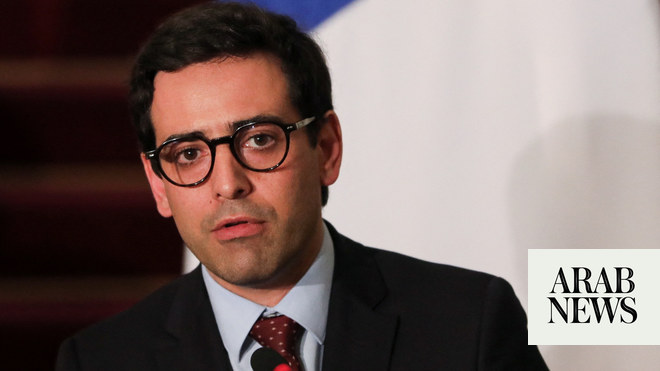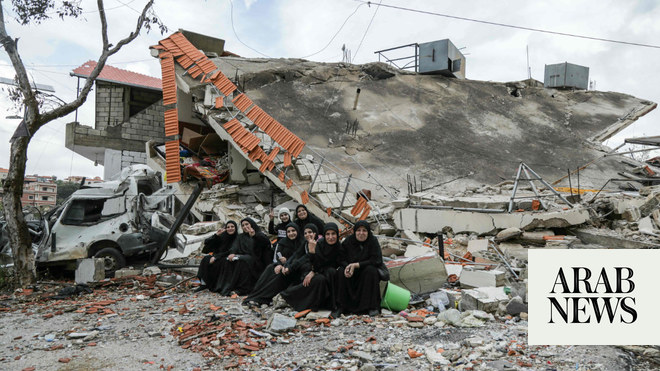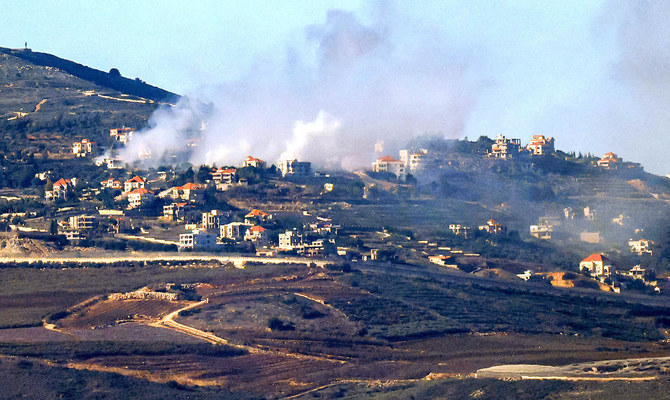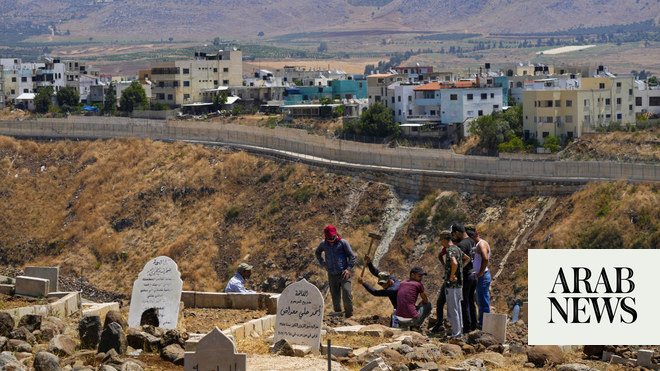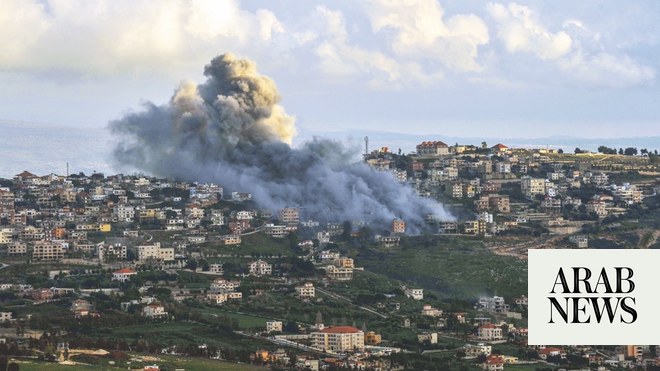
An escalation between Israel and Hezbollah has ended after a brief exchange of fire, but tensions remained high along the Lebanese border Monday after the enemies traded accusations.
Residents returned to life as normal on both sides of the border, though burnt fields could be seen and the Israeli military had established new checkpoints.
In southern Lebanon, farmers returned to their fields and the United Nations force tasked with monitoring the border area resumed its patrols, an AFP journalist said.
"Were used to this kind of thing," said Ali al-Safari, a resident of Bint Jbeil on the Lebanese side of the border. "We remain determined and calm."
Schools were open in the Israeli village of Avivim, from which the Lebanese town of Maroun al-Ras is clearly visible on a nearby hill.
"The war can start in a minute. I am worried it could happen," said Dudu Peretz, 35, as he dropped his son off at kindergarten.
Sundays incident, which caused no casualties, followed a week of rising tensions that included what the Iranian-backed Lebanese party described as an Israeli drone strike on its Beirut stronghold on August 25.
Israel has not acknowledged that attack but in its wake it published what it said were details of Hezbollahs efforts with Tehran to produce precision-guided missiles on Lebanese soil.
Hezbollah had warned of retaliation, and on Sunday fired anti-tank missiles from Lebanon at an Israeli battalion headquarters near Avivim and at a vehicle Israel said was a military ambulance.
Israel retaliated with around 100 artillery shells targeting the squad that fired the missiles.
Hezbollah said it had destroyed an Israeli military vehicle and killed and wounded those inside -- a claim refuted by Israel.
On Sunday, Israels military chief, Lt. Gen. Aviv Kohavi, met with the commander of the UN peacekeeping force, Maj. Gen. Stefano Del Col.
"We will not accept neither attacks on our civilians or soldiers," Kohavi said, adding that the Lebanese government and the UN peacekeepers "must bring Iran and Hezbollahs precision guided missile manufacturing project to its end."
Israels foreign minister, Israel Katz, said that he spoke to his German counterpart, Heiko Maas, and asked him to relay a message to Beirut. Katzs office said he made clear that Israel has no desire to escalate the situation, but that Israel is prepared to respond intensely to any attack, and would hold Lebanon responsible.
"If you dont block Hezbollahs activity against Israel, all of Lebanon will be hit and severely harmed," Katz said.
Hezbollahs Al-Manar TV on Monday aired footage purporting to show a missile being launched towards a moving armored vehicle before an explosion sends large clouds of white smoke into the sky.Decoy operation?
Al-Manars presenter said two Kornet anti-tank missiles had been fired at the target, 1.5 kilometers (one mile) from the border.
Israeli media reported that the military staged an evacuation of two supposedly injured soldiers, who were not in fact wounded, in order to deescalate the situation.
Newspapers ran photos showing the soldiers with allegedly fake injuries being evacuated.
They said the thinking was that Hezbollah could feel it achieved revenge with casualties but would also expect a blistering Israeli response, meaning it would stop its assault.
Israels military declined to comment.
It appeared neither side wanted a prolonged escalation.
After the flare-up, Lebanons Prime Minister Saad Hariri contacted senior US and French officials to urge their countries and the international community to intervene.
The UN called for restraint and France said it had made "multiple contacts" to avert further fire.
The United States slammed the "destabilizing role" of Iranian allies in the Middle East and said it "fully supports Israels right to self-defense".
Israel had been on alert for a Hezbollah reprisal.
On Saturday Hezbollah head Hassan Nasrallah said his movement would respond to the alleged Israeli drone attack.
The pre-dawn August 25 attack involved two drones -- one exploded and caused damage to a Hezbollah-run media center and another crashed without detonating due to technical failure, Hezbollah said.Prepared for any scenario
The incident came hours after Israel launched strikes in Syria to prevent what it said was an impending Iranian drone attack on the Jewish state, in which Hezbollah said two of its fighters were killed.
A source connected to Hezbollah called Sundays fire a response to those deaths and said a reaction to the alleged drone attack would take place in the air.
Israel has staged hundreds of strikes against Iranian and Hezbollah targets in Syria since the civil war began there in 2011, vowing to prevent its arch-foe Iran from entrenching itself militarily in the neighboring country.
The escalation came ahead of Israels September 17 election.
Prime Minister Benjamin Netanyahu is seen as wanting to avoid a major conflict before the vote, but he has also warned that Israel was "prepared for any scenario."
"We shall continue to do everything necessary to preserve Israels security - at sea, on land and in the air, and we will continue to act against the threat of precision missiles," he said on Monday.




